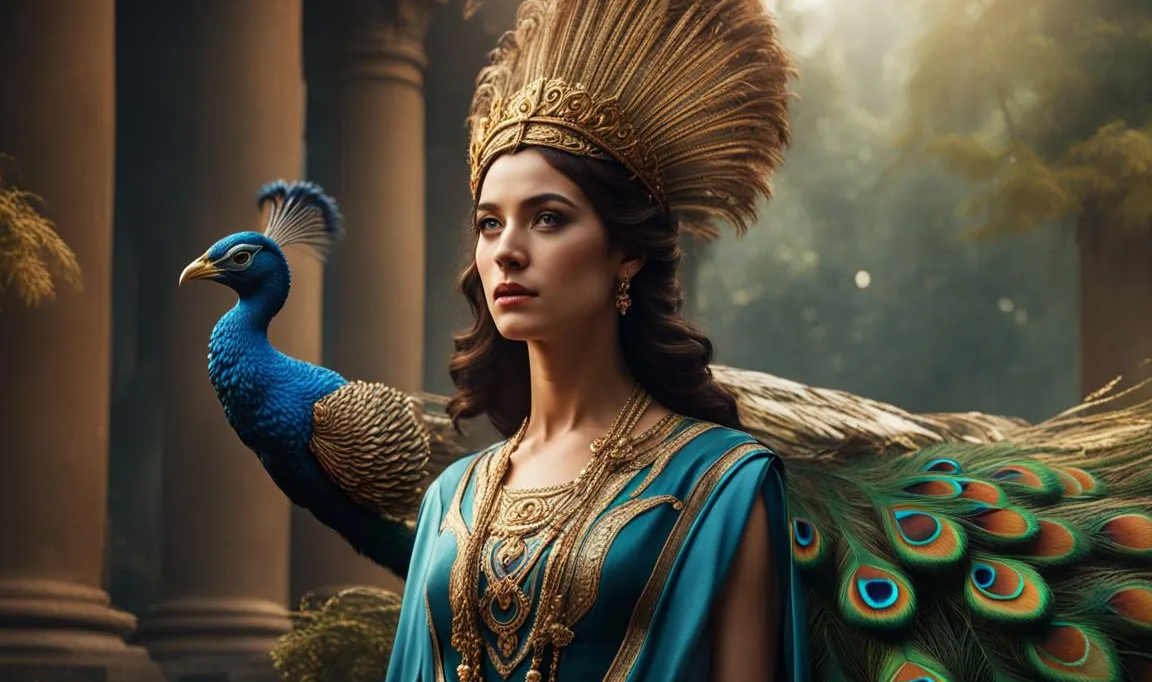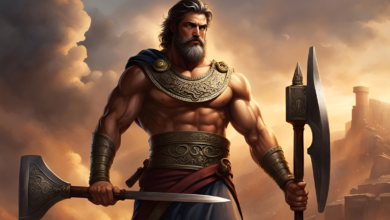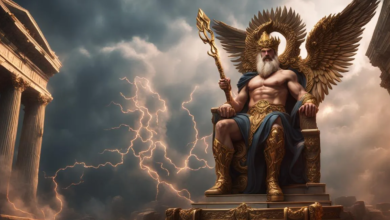Hera, revered in ancient Greek mythology as the queen of the gods, embodies the complexities of matrimony, sovereignty, and femininity. As the wife of Zeus and the daughter of the Titans Cronus and Rhea, her status among the Olympians is unparalleled, save by Zeus himself. Hera’s domain encompasses marriage, women, childbirth, and family, making her a central figure in the lives of both gods and mortals. Despite her illustrious position, Hera’s narratives often explore themes of loyalty, betrayal, and the pursuit of justice, reflecting the intricate dynamics of her divine relationships.
Hera’s marriage to Zeus is marked by her steadfast loyalty to the institution of marriage, despite Zeus’s numerous infidelities. This aspect of her character reveals a deep commitment to the sanctity and importance of marriage, while also highlighting her wrathful nature towards those who transgress its boundaries, including Zeus’s paramours and their offspring. Her jealousy and vengeance, though often depicted as one of her defining traits, underscore the complexities of her divine persona, balancing her role as a protector of marriage with her own tumultuous marital experiences.
Hera is the sister of Poseidon, Hades, Demeter, Hestia and Zeus and her children are Angelos, Arge, Ares, the Charities, Eileithyia, Eleutheria, Eris, Hebe and Hephaistus.
In art and mythology, Hera is portrayed as a figure of majesty and dignity. She is often depicted in regal attire, signifying her status as the queen of the gods, with the peacock—a symbol of her beauty and the allure of the heavens—serving as her sacred animal. The cow and the pomegranate are also associated with Hera, representing her connections to fertility, childbirth, and the earth. These symbols underscore her multifaceted nature as a goddess who is both nurturing and formidable.
Hera’s relationships with other deities and heroes are complex and varied. She is known for her persecution of Hercules, the son of Zeus and the mortal woman Alcmene, whom Hera sought to destroy from birth. Yet, she also showed moments of compassion and support towards other figures, demonstrating her capacity for benevolence and protection. Her role in the pantheon is not just as a figure of maternal care or jealous wife but encompasses a broader range of actions and motivations that reflect her deep connections to the themes of power, protection, and retribution.
Despite the often tumultuous aspects of her mythology, Hera’s worship was widespread in ancient Greece, with the Heraion of Samos and the sanctuary of Hera at Argos being among the most significant cult sites dedicated to her. These sites served not only as places of worship but also as centres for festivals and rituals celebrating her divine influence over marriage, childbirth, and the social order.
Hera’s legacy in Greek mythology is a testament to the ancient Greeks’ understanding of the divine as deeply intertwined with the human experience. Her narratives explore the tensions between fidelity and betrayal, power and vulnerability, revealing the complexities of the gods and their involvement in the affairs of mortals. As the queen of the gods, Hera embodies the ideals and challenges of her domains, offering insight into ancient Greek culture’s values and contradictions. Through Hera, mythology delves into the essence of sovereignty, loyalty, and the enduring power of the feminine divine.





